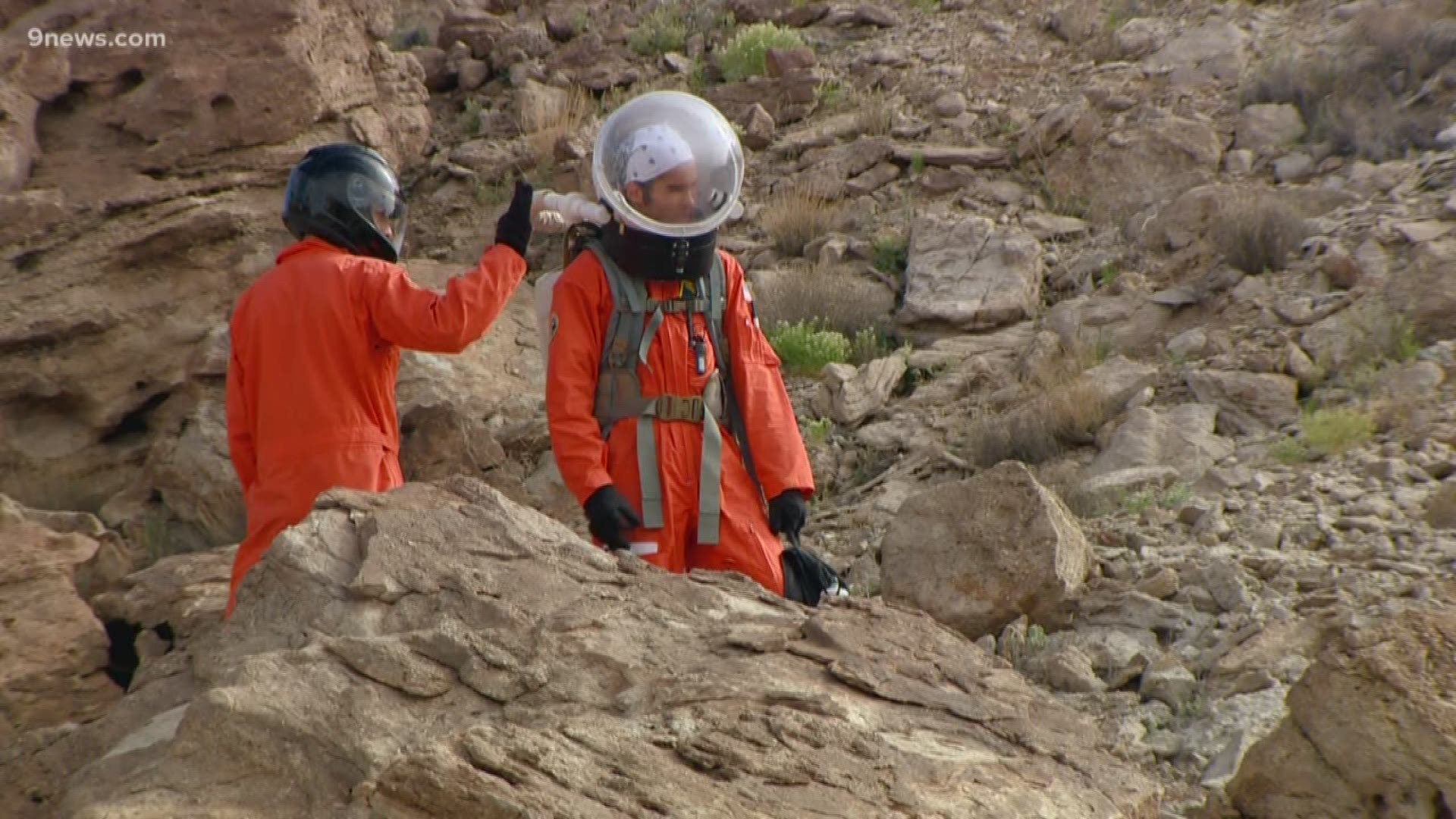HANKSVILLE, Utah — The land around Hanksville, Utah looks otherworldly.
The red dirt, lack of plants and animals and colorful striations in the rocky hills give the area a look that is a bit alien.
"You never really get to feel like you’re on another planet, or far from home, but this does capture that," said Giordan Thompson, a mechanical engineering student at the University of Colorado Boulder.
Thompson is at the research area for a one-week adventure. He said it is unlike anything he has studied, in a classroom unlike any other.
"Being here has pushed me towards aerospace engineering and space exploration," Thompson said.
He and 20 other students are in a class called “Medicine in Space and Surface Environments." The class was the idea of Dr. Ben Easter of the CU School of Medicine on the Anschutz Medical Campus, and Allison Anderson, an assistant professor in the Aerospace Engineering Department at CU Boulder.
"We think that to really push those boundaries and get people back to the moon and to Mars, and to care for them over a two-year mission, we really need people who are trained and can talk fluently across both of those disciplines," Easter said. "To improve care of people in space, predominantly that involves engineering."
Anderson said the students will be able to take the emergency medicine techniques they learn during the week back to their jobs as engineers, even if they never travel into space.
"They may [have] never been in this situation on the surface of Mars—I do hope for some of them they do—but they may never get to do so," Anderson said. "But the kinds of things we’re doing here will enable them to understand what that would be like."
The Mars Desert Research Station, operated by the Mars Society, hosts a variety of researchers and people interested in space exploration. The students received hands-on experience not available in a typical classroom.
"It's like a childhood dream for most of us," said CU Engineering grad student Michael Zero. "Statistically speaking, we’re not going to be astronauts, but being out here is very similar to being on a Martian habitat."
Easter said he hopes that curiosity and the new experience will help some students find and forge a new path in caring for people in space.
"What we’re hoping to do is to inspire some students early in their careers to think about the intersection of the fields," Easter said.
SUGGESTED VIDEOS | Apollo 11 anniversary

